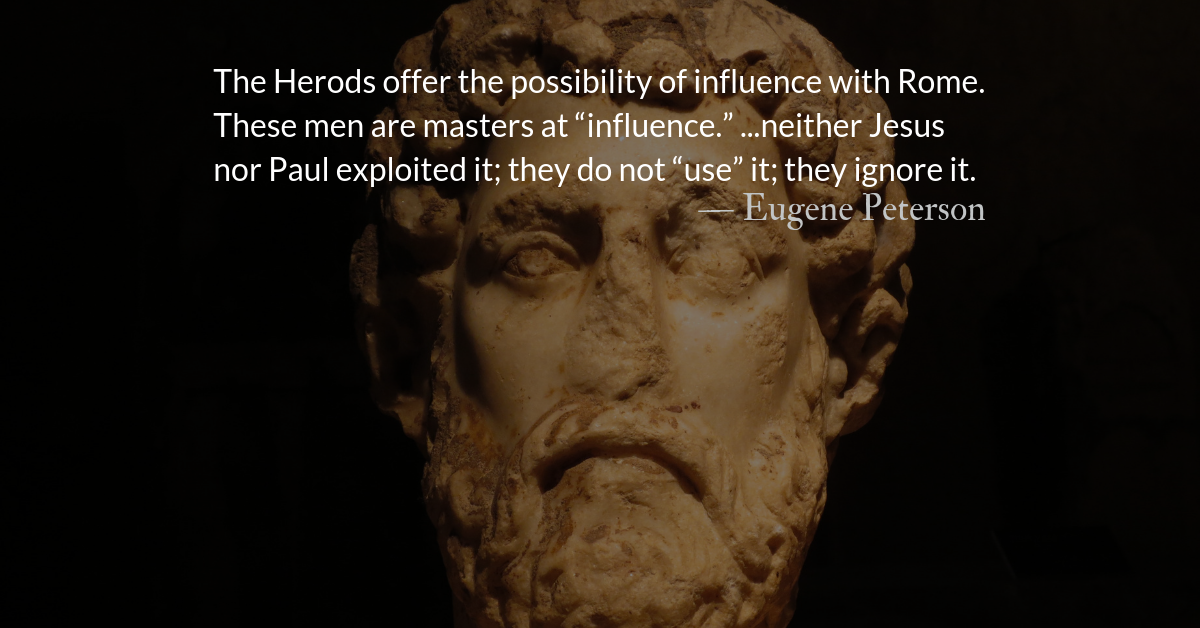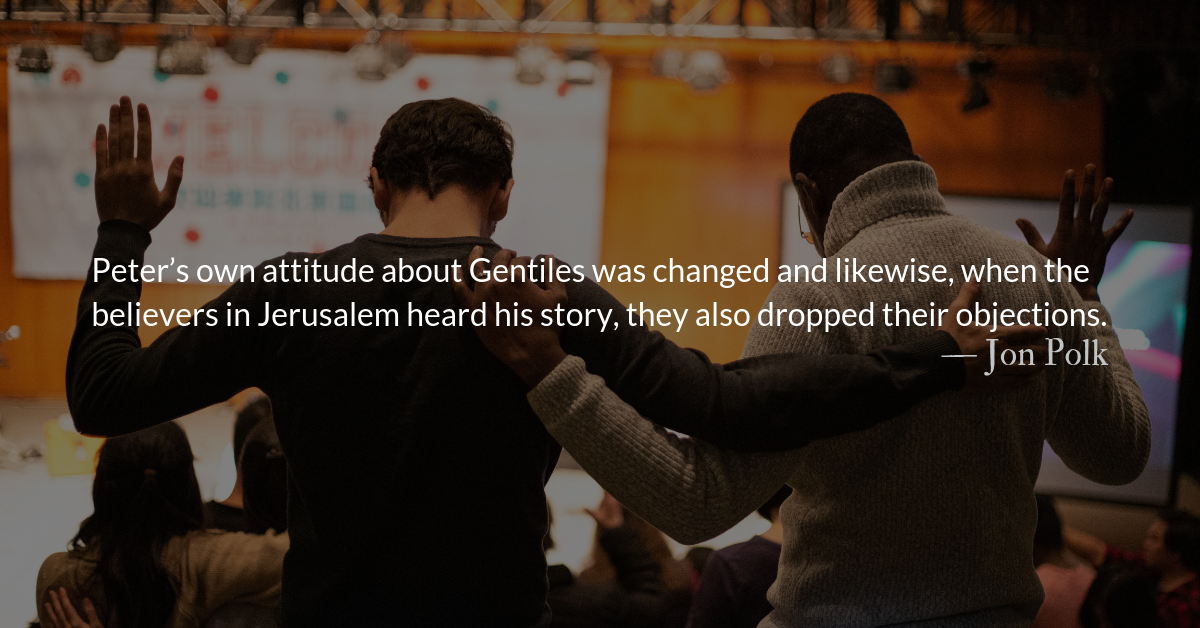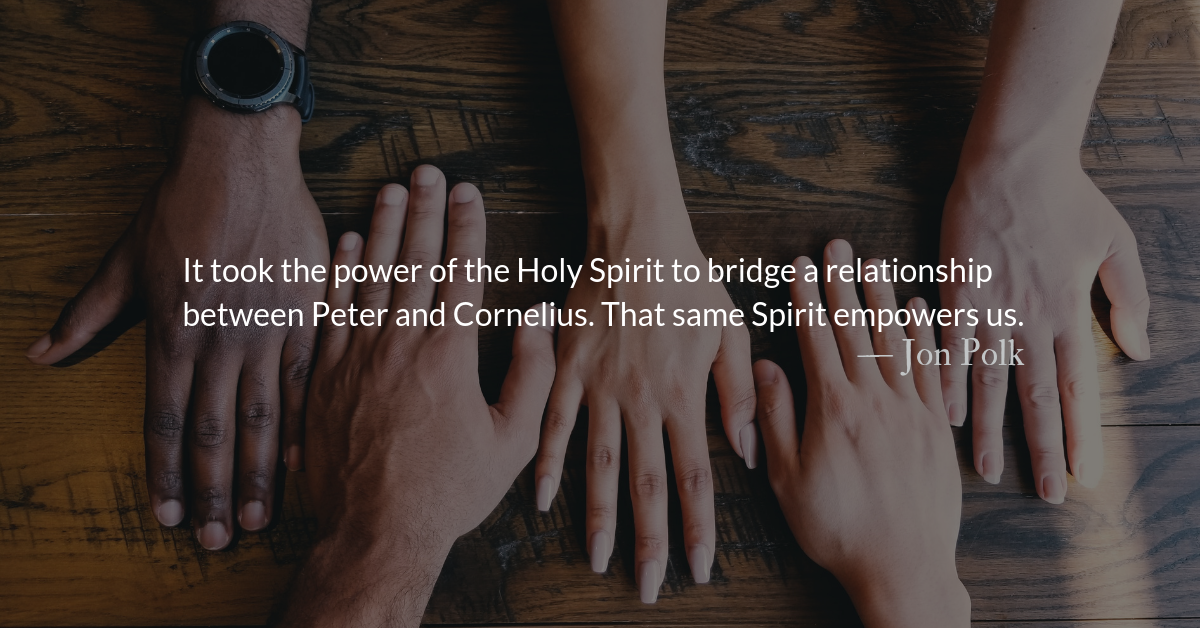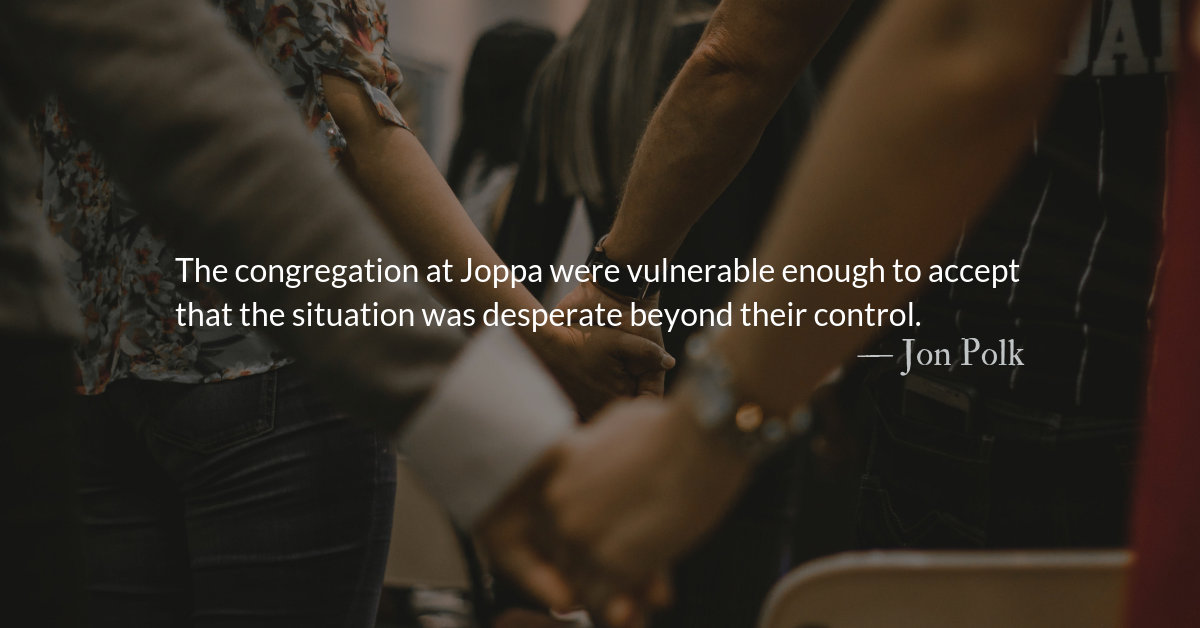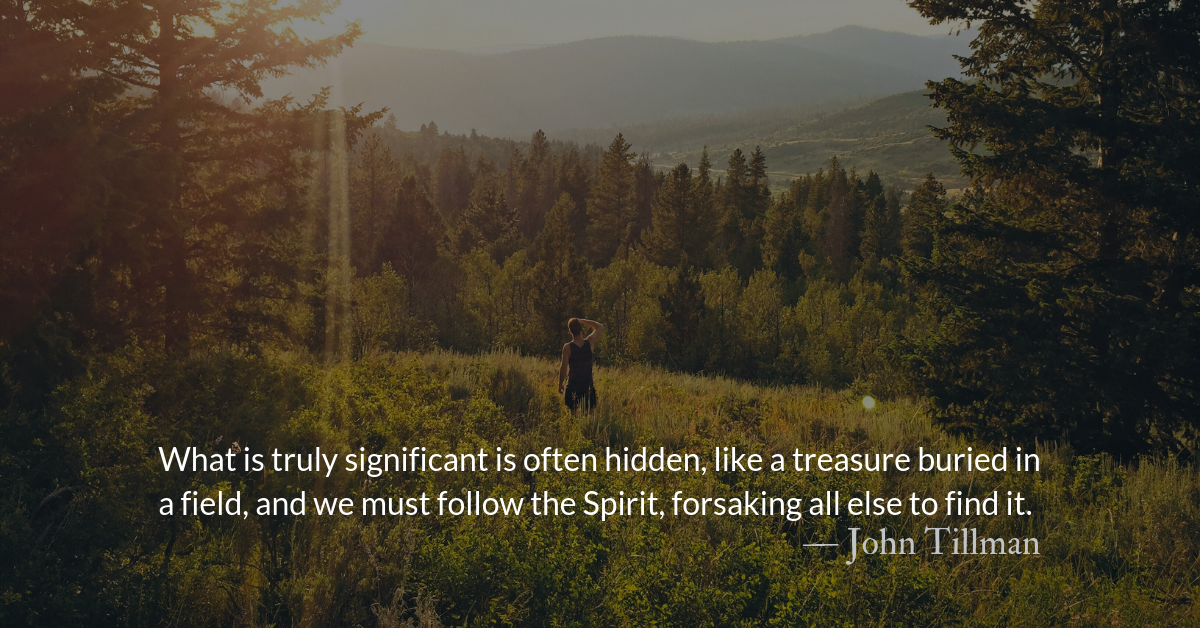Acts 12.21-22
On the appointed day Herod, wearing his royal robes, sat on his throne and delivered a public address to the people. They shouted, “This is the voice of a god, not of a man.”
Reflection: Resisting Herods
By John Tillman
In his book, Christ Plays in Ten Thousand Places, Eugene Peterson confesses regarding the Herods of the New Testament, “These were people who knew how to get things done.”
“The Herods epitomize the kind of people that the Jesus community is so often drawn to in hopes of gaining their approval, recruiting them as allies, and using their influence in the cause of the kingdom.
But neither Jesus nor Paul did it. Basically their attitude is one of detached indifference. There is no fawning, no sign of what so often comes out among us in the presence of important people as, “Oh what an opportunity! Let’s make the most of this…these are influential leaders.” Jesus virtually ignores them. Paul faithfully gives witness but with no attempt to adapt or curry favor.
What is significant here for understanding the community vis a vis the World is this: the Herods offer the possibility of influence with Rome. These men are masters at “influence.” Both Herods are curious about the men on trial: Antipas curious about Jesus, Agrippa curious about Paul. This curiosity is ripe for exploitation; it can be used for the kingdom. But neither Jesus nor Paul exploited it; they do not “use” it; they ignore it.
And why? Because Jesus and the Jesus community know that the conditions in which the gospel makes its way in the World have little to do with influence and wealth and power. The non-negotiable context from which they work is made up of Jesus, the cross and the Trinity. Neither celebrity nor “opportunity” distracts either Jesus or the Jesus community.
The world is a seductive place. Once we begin to cater to its interests, appeal to its curiosities, shape our language to its idioms and syntax, embrace its criteria of relevance, we abandon our basic orientation.
Too often what took place at the trials of Jesus and Paul, trials that put Jesus and Paul in contrast to the way of the World, recedes from our awareness and is replaced by assumptions dominated by opportunity, technique, and accomplishment. Jesus and Paul were not seduced…”
Today’s Christian leaders must demonstrate the ability to stand before today’s Herods with more of John the Baptist’s moral compass, Christ’s wordless resistance, and Paul’s refusal to beg favors in his own defense.
Few seem to know how. The Herods of the world keep sucking us in.
Prayer: A Reading
Jesus called them to him and said, “You know that among the Gentiles the rulers lord it over them, and great men make their authority felt. Among you, this is not to happen. No; anyone who wants to become great among you must be your servant, and anyone who wants to be first among you must be your slave, just as the Son of man came not to be served but to serve, and to give his life as a ransom for many.” — Matthew 20.25-28
– From The Divine Hours: Prayers for Summertime by Phyllis Tickle.
Today’s Readings
Judges 8 (Listen – 5:08)
Acts 12 (Listen – 3:49)
Thank You!
Thank you to our donors who support our readers by making it possible to continue The Park Forum devotionals. This year, The Park Forum audiences opened 200,000 free, and ad-free, devotional content. Follow this link to join our donors with a one-time or a monthly gift.
Read more about Who is Your King?
When God sets out to make things new, he eschews governments. He starts a family. He lifts up outcasts. He frees slaves. He gathers a community.
Read more about Worship and Politics
”Look not to the interests of the wealthy whose hands proffer you bribes, but protect the rights of the needy” — Charles Spurgeon
Help us fill August with reflections from you about the post or posts from the past eleven months that have challenged and comforted you and helped you find new meaning in the scriptures.
Follow the link to fill out the form. Please limit your submissions to posts published this calendar year, between September of 2018 and today.
For any questions contact John Tillman at john@theparkforum.org

